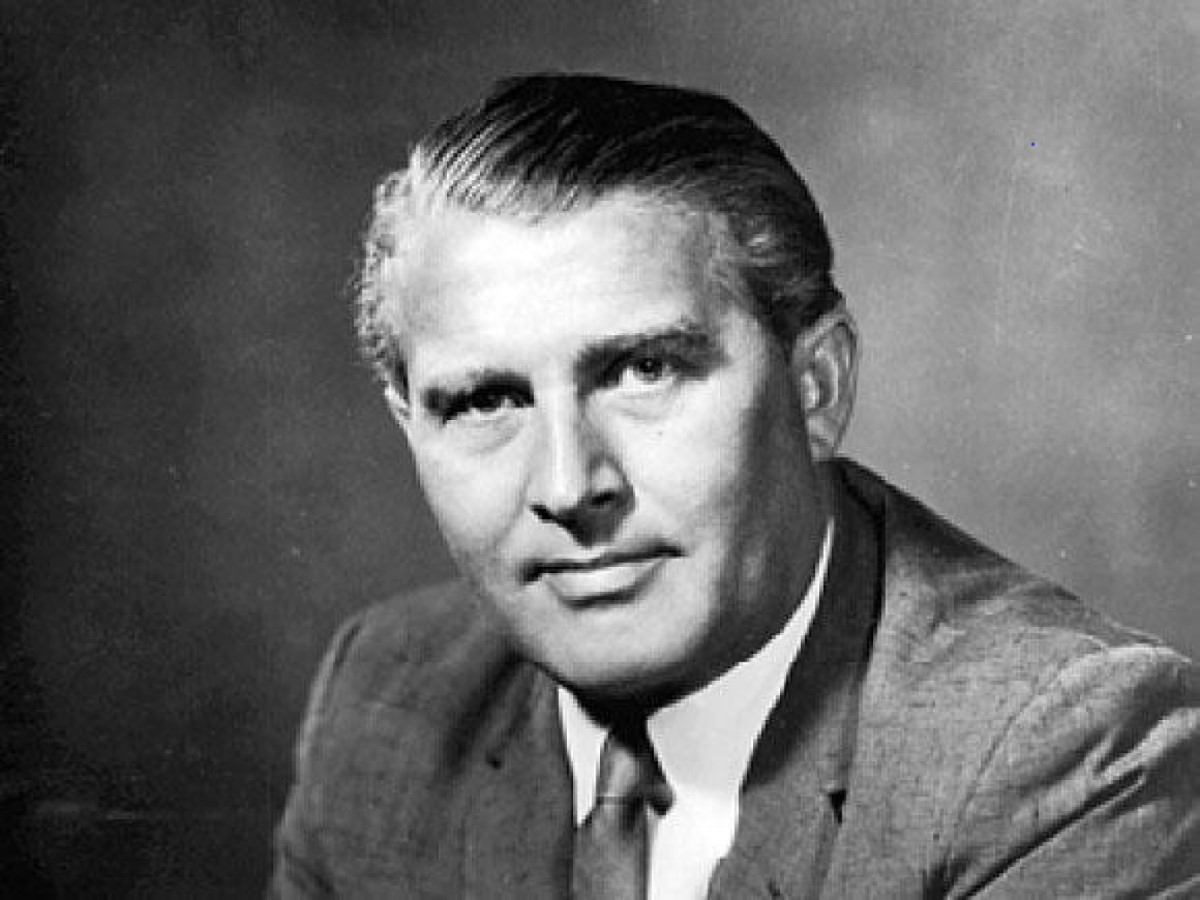'Chasing the Moon' Shows Nazi Past of Engineer Wernher Von Braun in Early Space Program (Video)
A new clip from the forthcoming PBS series "Chasing the Moon" shows the Nazi past of Wernher von Braun, one of NASA's top rocket engineers from the early days of American spaceflight.
The clip, provided exclusively to Space.com by PBS, shows historic footage of the United States' first satellite flight and several scenes featuring von Braun.
The series premieres July 8 to 10 (all nights at 9 p.m. EDT) on PBS, just days before July 20, the 50th anniversary of the first moon landing. On the first night, the series touches on von Braun, who led the design of Apollo's Saturn V rocket — and who also boosted America's first satellite into space in 1958.
Related: Apollo 11 at 50: A Complete Guide to the Historic Moon Landing Mission
Explorer 1's successful launch on Jan. 31 of that year aboard the von Braun team's Juno rocket (a modified Jupiter missile) was a much-needed triumph for the United States, which was still reeling from the Soviet Union's launch of Sputnik in 1957. The Americans' first attempt at a satellite launch in 1957, on top of a Vanguard rocket, had ended in a dramatic explosion dubbed "Kaputnik" by some of the press. (The satellite survived and rolled ignominiously into some bushes near the pad, cheerfully beeping as it was designed to do.)
The new PBS series shows footage from Explorer's launch preparations, narrated by the voice of Ed Buckbee, who was the public relations officer at the Army's location in Huntsville, Alabama, where the rocket was built. "They were heroes," he said of von Braun's team. But as U.S. space historian John Logsdon pointed out, von Braun had a grimmer past before migrating to the United States after World War II.

The German had developed rockets under the Nazi regime during the global war. Rockets were still a new technology in the 1940s, and it was difficult for the German rocketry team, including von Braun, to precisely target London for attacks — but they persisted, regularly killing civilians in a strategic bombing campaign known as "the Blitz."
Get the Space.com Newsletter
Breaking space news, the latest updates on rocket launches, skywatching events and more!
After Nazi Germany surrendered to the Allied forces, ending World War II, both the United States and the Soviet Union recruited and welcomed rocket engineers who had worked for the Nazis. Von Braun led the group who migrated to the U.S., and the expertise of his engineers helped build several U.S. rockets, including the Saturn V that eventually sent humans to the moon.
Von Braun quickly became popular on American television for his dreams of spaceflight, but relations with the government officials he was supposed to be working with were more difficult, said Logsdon, the founder of the Space Policy Institute at George Washington University.
"Inside the government, [von Braun] was first of all a pain in the ass," Logsdon said. "Difficult to deal with, a prima donna, and the government was well aware of his background under [Nazi leader Adolf] Hitler and his possible engagement with the S.S. [Nazi police] and being a registered Nazi."
British theoretical physicist Freeman Dyson offered another angle of critique to Logsdon's concerns, saying that von Braun's effort at early rocket development in Germany was a "total waste of money" for the Germans. (That work did, however, lead directly to the more powerful and precise rockets he developed in the United States.)
"He advanced the whole field," Dyson said, adding that he shared von Braun's belief that humanity wouldn't be confined to Earth. "I felt the same way — it was just obvious."
Von Braun's Nazi past was included in the 1960 Hollywood movie "I Aim At The Stars," which premiered in American theaters two years after the triumph of Explorer 1. PBS also shows part of the film, in which the actor playing Von Braun (Curt Jürgens) has a discussion with one of his German supervisors.
- Catch These Events Celebrating Apollo 11 Moon Landing's 50th Anniversary
- Reading Apollo 11: The Best New Books About the US Moon Landings
- Lego's Epic Apollo 11 Lunar Lander Set in Photos!
Follow Elizabeth Howell on Twitter @howellspace. Follow us on Twitter @Spacedotcom and on Facebook.
Join our Space Forums to keep talking space on the latest missions, night sky and more! And if you have a news tip, correction or comment, let us know at: community@space.com.

Elizabeth Howell (she/her), Ph.D., was a staff writer in the spaceflight channel between 2022 and 2024 specializing in Canadian space news. She was contributing writer for Space.com for 10 years from 2012 to 2024. Elizabeth's reporting includes multiple exclusives with the White House, leading world coverage about a lost-and-found space tomato on the International Space Station, witnessing five human spaceflight launches on two continents, flying parabolic, working inside a spacesuit, and participating in a simulated Mars mission. Her latest book, "Why Am I Taller?" (ECW Press, 2022) is co-written with astronaut Dave Williams.









